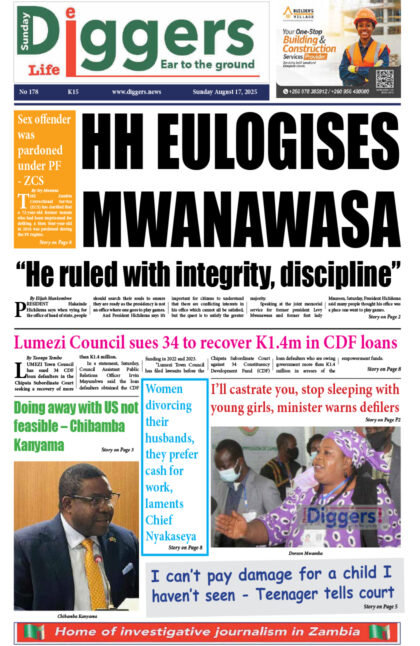Bloggers of Zambia chief executive officer Richard Mulonga says government must not use the Special Joint Cyber crime Crack Squad (SJCCS) must not be used to clamp down on internet users.
Last week, government through the Ministry of Transport and Communication announced the establishment of a Special Joint Cyber crime Crack Squad aimed at mitigating the abuse and illegal use of internet.
But in a statement, Mulonga warned against using the squad to infringe on citizen’s rights.
“We have noted with interest, the formation of the Special Joint Cyber crime Crack Squad as announced last week by the Ministry of Transport and Communications. Our appeal is that this crack squad must not be used to violate citizen rights and freedoms as noted in the current trend in some parts of Africa where internet laws, regulations and taxes are being used to curtail the civic space. While we acknowledge the need for laws that would encourage open, safe and accessible use of the internet, we have noted that there has been no inclusion of relevant stakeholders in the process of setting standards for internet governance in Zambia,” Mulonga stated.
Mulonga urged government to take a human rights approach in developing internet laws and regulations and bring in laws that promote effective use of the internet ecosystem.
“It is with this concern that we urge the government to take a human rights approach in developing internet laws and regulations. We are calling for internet laws and regulations that promote effective use of the internet ecosystem in Zambia, unlike invasive and brutal regulations that discourage citizens from harnessing the internet resource for development. The CJCCS must enhance safety, security and access for all, including women, children and girls. The crack, whose composition we are yet to be informed must be not be seen to an affront to free expression and assembly. The internet must be governed in a multi-sectoral way in order to make the resource affordable and neutral for all. We urge the authorities in Zambia to also focus energies on education and sensitization programmes around matters of the internet prior to imposing laws, regulations and taxes that hinder innovation and entrepreneurship online,” stated Mulonga.























